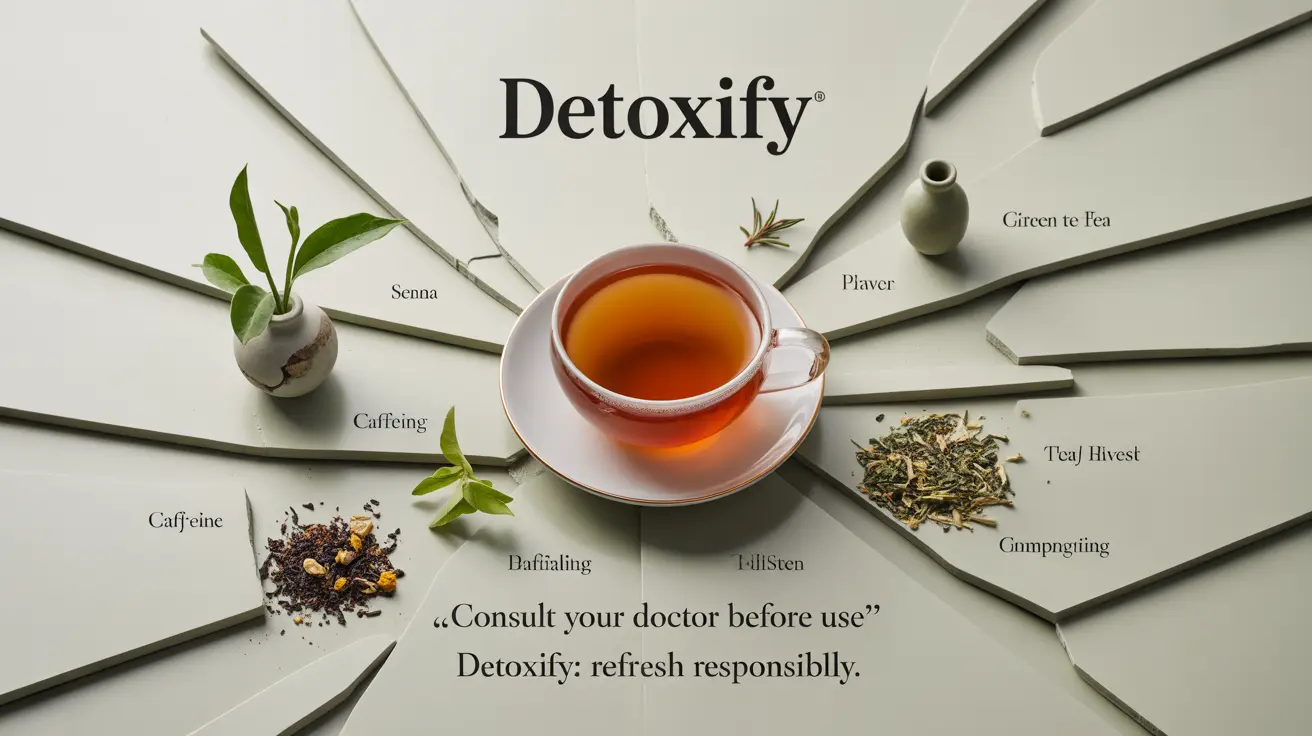As detox teas gain popularity in wellness and weight loss circles, it's crucial to understand their potential impacts on your health. These beverages, often marketed as natural solutions for cleansing and weight management, can carry significant risks that many consumers aren't aware of.
This comprehensive guide examines the real effects of detox teas on your body, helping you make an informed decision about their use and safety.
Understanding Detox Tea Components
Detox teas typically contain a variety of ingredients, including herbs, stimulants, and natural laxatives. Common components include:
- Senna leaves
- Caffeine
- Green tea extract
- Dandelion root
- Ginger
- Guarana
While some of these ingredients have legitimate medicinal properties, their combination and concentration in detox teas can lead to unexpected health consequences.
Primary Health Risks and Side Effects
Digestive System Issues
The most immediate and common side effects of detox teas affect the digestive system:
- Severe diarrhea
- Abdominal cramping
- Dehydration
- Electrolyte imbalances
- Nausea
These effects are primarily caused by the natural laxatives present in many detox tea formulations.
Cardiovascular Concerns
The high levels of stimulants in detox teas can impact heart health:
- Increased heart rate
- Higher blood pressure
- Heart palpitations
- Anxiety and jitteriness
The Truth About Weight Loss Claims
While detox teas may appear to promote weight loss, the results are often temporary and potentially dangerous. The weight reduction typically comes from:
- Water loss through increased urination
- Temporary reduction in water retention
- Loss of electrolytes through diarrhea
- Reduced caloric intake due to digestive effects
This type of weight loss is neither healthy nor sustainable, and can lead to a cycle of dependency on these products.
Medication Interactions and Safety Concerns
Detox teas can seriously interact with various medications:
- Birth control pills
- Blood pressure medications
- Heart medications
- Diabetes treatments
- Anti-anxiety medications
The absorption and effectiveness of these medications may be compromised when combined with detox tea ingredients.
Long-Term Health Implications
Regular consumption of detox teas can lead to several chronic health issues:
- Dependence on laxatives
- Weakened natural digestive processes
- Nutrient deficiencies
- Liver strain
- Kidney problems
- Irregular bowel function
Frequently Asked Questions
What are the common side effects and health risks associated with detox tea use?
Common side effects include severe diarrhea, abdominal pain, dehydration, electrolyte imbalances, heart palpitations, and anxiety. Some users may experience headaches, dizziness, and weakness due to fluid loss and mineral depletion.
How do detox teas cause weight loss, and is this weight loss healthy or sustainable?
Detox teas primarily cause weight loss through water loss and temporary effects of laxatives. This weight loss is not sustainable and can be dangerous, as it doesn't address actual fat loss and can lead to dehydration and electrolyte imbalances.
Can detox teas interact with medications like birth control or cause dangerous drug interactions?
Yes, detox teas can significantly interact with medications. They can reduce the effectiveness of birth control pills, blood pressure medications, and other prescription drugs by affecting their absorption or metabolism in the body.
What are the long-term effects of regularly drinking detox teas on bowel function and overall health?
Regular use of detox teas can lead to laxative dependency, irregular bowel movements, weakened digestive function, and potential damage to the liver and kidneys. Long-term use may also result in chronic dehydration and nutrient deficiencies.
Are detox teas effective for removing toxins from the body or improving liver and kidney function?
There is no scientific evidence supporting claims that detox teas effectively remove toxins or improve organ function. The body's liver and kidneys are naturally designed to filter and remove toxins without the need for special teas or supplements.




